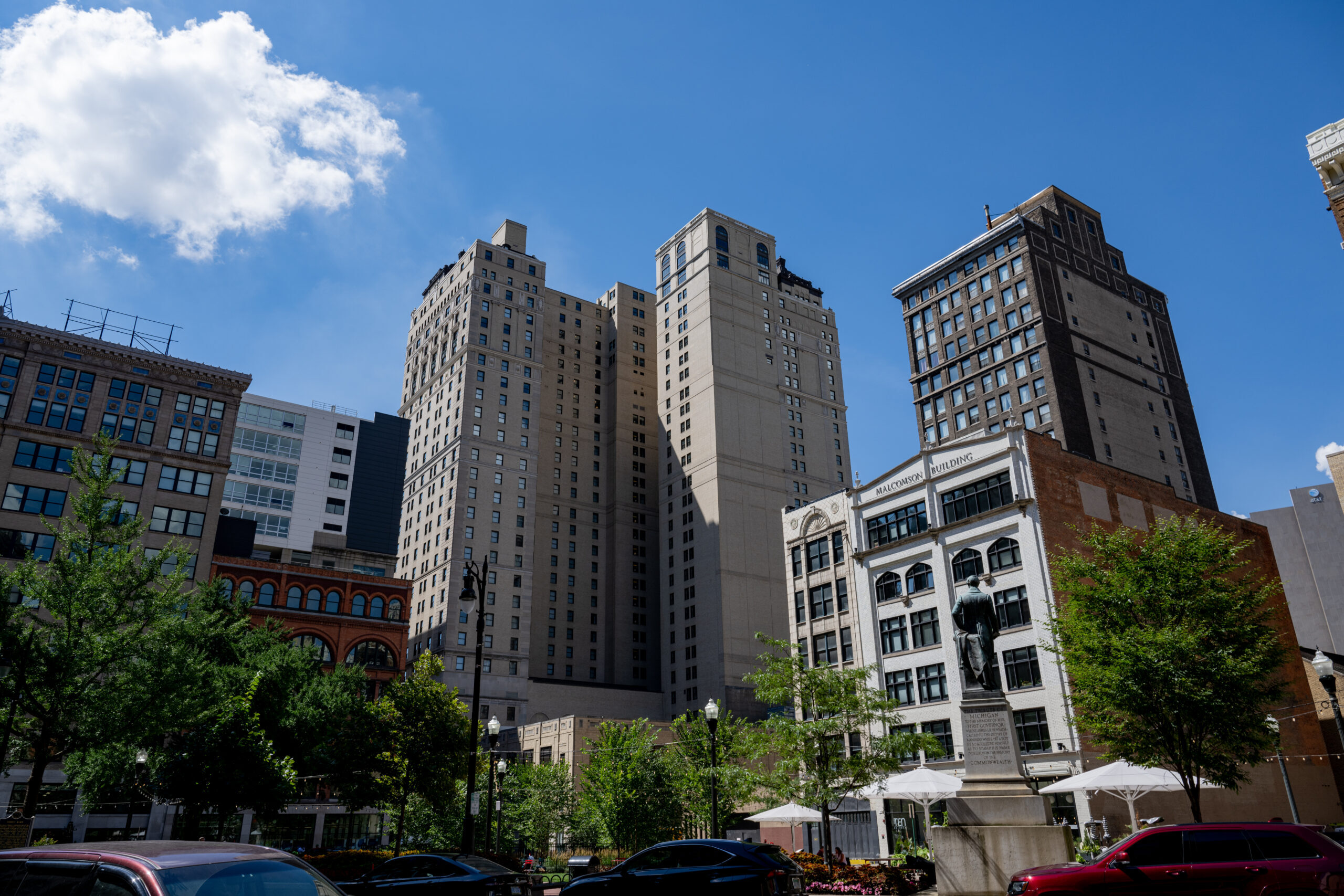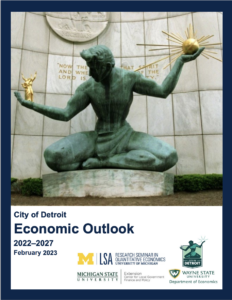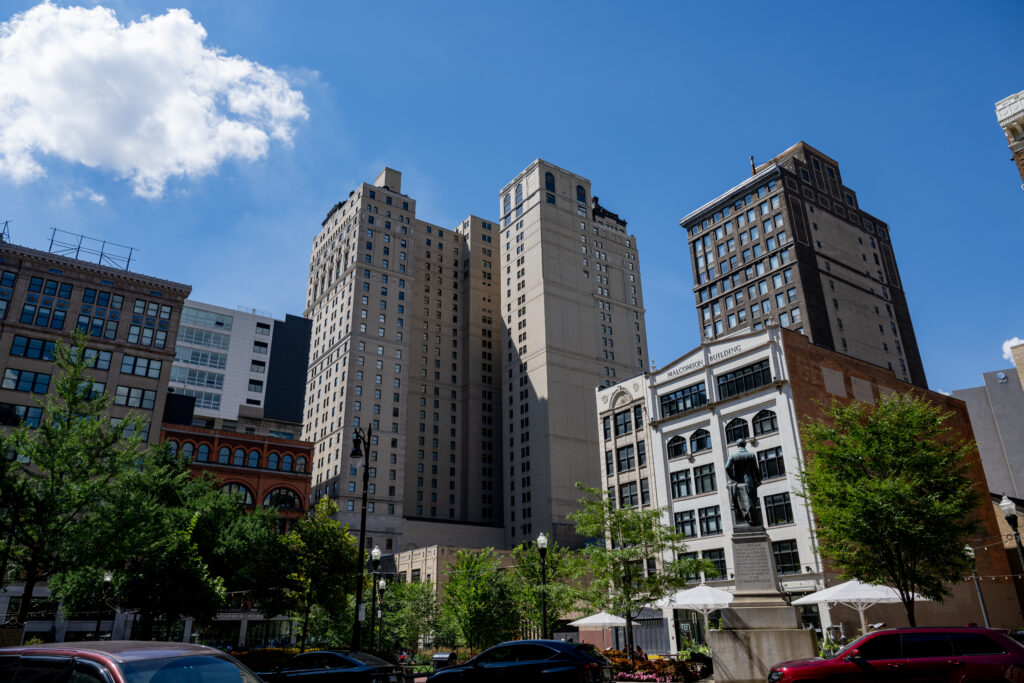Source: Michigan News

Downtown Detroit. Credit: Eric Bronson, Michigan Photography

Downtown Detroit. Credit: Eric Bronson, Michigan Photography
More Info
Despite lingering inflation and a likely national recession, the city of Detroit is expected to break with historical trends and avoid the worst effects of the broader national economic slowdown, according to a University of Michigan study.
The Detroit Economic Outlook for 2022-27 cites pent-up demand for vehicles and other factors as likely to sustain employment at companies located in the city—and employment among its residents—during the forecast period. If that holds, Detroit would see employment levels well above their pre-pandemic levels by 2027.
“We expect Detroit’s resilience in recovering from the pandemic to date to translate into continued growth—even amid a challenging national economy,” said Gabriel Ehrlich, director of U-M’s Research Seminar in Quantitative Economics.
The city’s jobless rates of late last year were well below 2019 levels, representing “a genuine accomplishment in Detroit’s recovery,” the economists say in their report. Still, they add, the improvement came from a drop in the labor force instead of a rise in the number of employed residents.
The trend concerns them, particularly if it represents the exit of discouraged workers unable to find good jobs. Fortunately, they expect the city’s continued recovery to draw workers back in the coming years.
Even so, the economists expect some speed bumps as the national economy enters a mild recession in late 2023 to early 2024. Ehrlich and his colleagues project Detroit’s jobless rate to rise from a seasonally adjusted rate of 7.8% this past December to a peak of just above 9% next year—roughly in line with the average in 2018.
As the national economy recovers, the economists project the city’s jobless rate to drop sharply, settling at 7% in 2027—its lowest level since the year 2000. For comparison, the economists expect the rate for Michigan as a whole to fall to 3.4% by 2027.
Of all the employment sectors, the blue-collar industry group is expected to remain a highlight, with sustained employer demand as the economy rebounds from its pandemic-driven collapse. Detroit has been a hub of blue-collar activity, with construction of the Gordie Howe International Bridge, Stellantis’ Mack Assembly complex, General Motors’ Factory Zero and a new Amazon distribution center.
Overall, the report says that employment gains within the city, which totaled 8,000 jobs last year, are expected to slow to 2,200 jobs this year before accelerating to an average of 2,700 jobs per year through 2027 as the national economy picks back up.
Wage gains are expected to register 4.3% this year, roughly on par with moderating inflation. As the city’s economy approaches full employment and inflation subsides, the economists expect wage gains to outpace inflation from 2024 to 2027.
By the end of the forecast period, the average annual wage of all workers at city establishments will reach $90,700, or 32% higher than 2019. Michigan’s average wage rate will increase to $75,500 in that time.
Meanwhile, the economists project wage growth of Detroit residents to keep pace with wages at jobs located in the city: Resident wages should climb to $47,500 by 2027. That’s welcome progress, the report notes, but would still be only slightly more than one-half the level paid by establishments located in the city that year.
Of course, all forecasting comes with risks, and the economists say their projections could change if there is a downturn in manufacturing or sharper contractions in the local construction and finance industries. However, they believe Detroit’s economy should continue growing over the next several years, leading employment and wage levels both among Detroiters and at jobs located within the city to reach well above their pre-pandemic levels.
The forecast was produced as part of the City of Detroit-University Economic Analysis Partnership between the University of Michigan, the city of Detroit, Michigan State University and Wayne State University.


